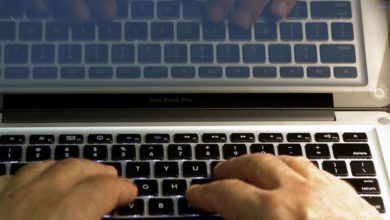
More states are lifting eligibility requirements for Americans to receive coveted coronavirus vaccines.
Indiana, Texas, Georgia and Louisiana are among the latest to join the majority of states in allowing all adults to receive coronavirus vaccines late this week or next week. Utah opened all eligibility Wednesday.
However, with the lifting of eligibility requirements comes a removal of business and masking restrictions. Indiana Gov. Eric Holcomb plans to end the statewide mask mandate and remaining COVID-19 business restrictions in two weeks. And many other states have already ceased mitigation measures.
It all comes as experts warn of a fourth surge with new variants spreading rapidly through the United States. In the last week alone, the U.S. has reported 2,926 new variant cases – more than the country reported in December, January and February combined, a USA TODAY Network analysis of CDC data shows.
"I continue to be worried about the latest data and the apparent stall we’re seeing in the trajectory of the pandemic," CDC Director Dr. Rochelle Walensky said Wednesday.
Also in the news:
►The U.S. surpassed 30 million coronavirus cases Wednesday afternoon, once again reaching a dubious milestone much faster than any other country. The next closest on the list is Brazil with 12.1 million infections. The U.S. also holds the lead by a large margin in COVID-19 deaths with upwards of 545,000. Brazil is next with close to 300,000 fatalities.
►California state prisons will resume limited in-person visits with inmates April 10, more than a year after they were halted because of the coronavirus pandemic.
►Hours after COVID-19 vaccine collaborators AstraZeneca and Oxford University released data on their large clinical trial, federal officials said that information may have been missing a month's worth of data.
►The White House said 27 million doses of coronavirus vaccines will be distributed in the next seven days, more than three times the 8.6 million sent out the week before President Joe Biden took office just over two months ago. The U.S. is currently administering 17.5 million shots a week. About 70% of Americans 65 and older have received at least one dose.
►People who are fully vaccinated do not need to wear masks at work in Anchorage, Alaska, when they are in their own workspace away from the public and unvaccinated colleagues, under an updated emergency order that took effect Tuesday.
? Today's numbers: The U.S. has more than 30 million confirmed coronavirus cases and more than 545,000 deaths, according to Johns Hopkins University data. The global totals: 124.5 million cases and 2.74 million deaths. More than 169.2 million vaccine doses have been distributed in the U.S. and 130.4 million have been administered, according to the CDC.
? What we're reading: The pandemic ushered in "a new era of medicine." These telehealth trends are likely here to stay.
USA TODAY is tracking COVID-19 news. Keep refreshing this page for the latest updates. Want more? Sign up for our Coronavirus Watch newsletter for updates to your inbox and join our Facebook group.
Moncef Slaoui, former Operation Warp Speed science chief, fired by drugmaker for sexual harassment
Moncef Slaoui, former scientific head of Operation Warp Speed, the government's COVID-19 vaccine development effort, has been fired by GlaxoSmithKline after an internal investigation found he sexually harassed a fellow employee several years ago.
Slaoui left his role at GSK in 2017, but continued to serve as chairman of the board for Galvani Bioelectronics, a joint venture between GSK and Verily Life Sciences. In February, GSK authorities received a letter alleging that Slaoui sexually harassed and acted inappropriately toward a GSK employee several years ago.
A law firm hired by the company confirmed the allegations, according to Emma Walmsley, GSK's CEO, who wrote a letter Wednesday about the firing sent to all company employees. She also said that the company is renaming its research and development facility in Rockville, Maryland, which had been called the Slaoui Center for Vaccines Research.
Slaoui did not immediately respond to a text sent to his phone. Read more.
– Karen Weintraub
Brazil sees highest COVID-19 death tolls of the pandemic; economists call for 'emergency lockdown'
Hundreds of Brazilian economists, including former finance ministers and central bank presidents, urged the Brazilian government in an open letter this week to speed up vaccination and adopt tougher restrictions to stop the rampant spread of the coronavirus. Brazil is about to join the U.S. as the only countries with more than 300,000 COVID-19 deaths.
The signatories of the letter decried the "devastating" economic and social situation in Latin America’s largest nation. They also attempted to debunk President Jair Bolsonaro’s assertion that lockdowns and restrictions would inflict greater hardship on the population than the disease.
"This recession, as well as its harmful social consequences, was caused by the pandemic and will not be overcome until the pandemic is controlled through competent action from the federal government," the letter read. "It is urgent that the different levels of government prepare to implement an emergency lockdown." Read more.
– The Associated Press
Health officials concerned as US cases stop falling
America's long stretch of dwindling coronavirus cases has stalled, and rapid increases in some states could count for more than ongoing declines in others.U.S. health officials expressed concern Wednesday about the plateau and refused to say the nation has turned the corner on the coronavirus pandemic.
"I continue to be worried about the latest data and the apparent stall we’re seeing in the trajectory of the pandemic," Dr. Rochelle Walensky, head of the Centers for Disease Control and Prevention, said during a White House Coronavirus Task Force briefing.
The U.S. is reporting a seven-day average of about 55,000 new cases per day, up 3% from the previous week. The country is also reporting about 4,600 new hospitalizations and nearly 1,000 deaths per day, Walensky said.
"When you’re at that level, I don’t think you can declare victory," Dr. Anthony Fauci said during the briefing. "We are at the corner. Whether or not we’re going to be turning that corner remains to be seen."
Walensky said she was particularly concerned about reports of spring breakers neglecting public health precautions. "What concerns me is the footage of what’s happening in spring breakers and people who are not continuing to implement prevention strategies while we get scaled up," she said. "I emphasize how we need to hang in there for just a little while longer."
About 2.5 million Americans are being vaccinated each day, according to Andy Slavitt, White House senior adviser for COVID-19 response.
US adds nearly 3,000 new variant cases in last week, CDC data shows
In the last week alone, the United States has reported 2,926 new variant cases – more than the country reported in December, January and February combined, a USA TODAY Network analysis of Centers for Disease Control data shows.
Tuesday's report included another 1,143 new variant cases just since Sunday's report, bringing the country to 7,781 cases of coronavirus that can spread more easily, dodge treatments and immunities, or both.
Some of the biggest increases now are in Michigan's communities, rather than its prisons. The CDC reported another 371 variant cases for the state, though many of them appear to be delayed reporting from last week. The variant cases are surging in a state where the pace of new coronavirus cases has tripled in the last month, even as case counts in much of the country have declined.
Other states with high increases include New Jersey, where known variant cases more than doubled as 230 new cases were added to reach 393. New Jersey's coronavirus case counts on a per-person basis have been the highest in the nation, and have been climbing.
Nearly all of the new variant cases are of B.1.1.7, which was first found in the United Kingdom.
– Kristi Tanner and Mike Stucka
Data from three new studies show real-world vaccine effectiveness
Data on frontline healthcare workers in Texas, California and Israel suggest COVID-19 vaccines are effective in preventing coronavirus infections in real-world settings, according to three new studies published in the New England Journal of Medicine Tuesday.
"For those who were fully vaccinated, the infection rate was extremely low," White House adviser Dr. Anthony Fauci said during a briefing Wednesday, calling the studies "a real proof positive of the importance of vaccination."
- At the University of Texas Southwestern Medical Center, only four of more than 8,000 fully vaccinated employees tested positive for COVID-19 as of late January, according to health system officials. "The effect of vaccination on the preservation of our workforce has been dramatic," hospital officials wrote. "Real-world experience with SARS-CoV-2 vaccination at UTSW has shown a marked reduction in the incidence of infections among employees."
- Among healthcare workers at the University of California-San Diego and the University of California-Los Angeles, the risk of testing positive for COVID-19 after vaccination was about 1%, according to health system officials. "The rarity of positive test results 14 days after administration of the second dose of vaccine is encouraging and suggests that the efficacy of these vaccines is maintained outside the trial setting."
- At Hadassah Hebrew University Medical Center in Jerusalem, officials found vaccinations among healthcare workers "resulted in a major reduction of new cases of COVID-19 among those who received two doses of the vaccine, even when a surge of the B.1.1.7 variant was noted in up to 80% of cases." The officials said the findings "suggest that widespread and effective vaccination among health care workers provides a safe environment, even in the presence of a high rate of SARS-CoV-2 infection in the community."
Black, Hispanic and Asian students less likely to receive in-person learning compared with white peers
About three quarters of public elementary and middle schools in the U.S. were open for in-person learning in January, but white students were far more likely to be sitting in classrooms than their Black, Hispanic and Asian peers, a new nationwide government survey shows.
More than half of all Black, Hispanic and Asian fourth-grade students were learning 100% remotely at the beginning of 2021, compared to just one in four white peers, according to the new data, collected by the National Assessment of Educational Progress.
The data comes from 32 participating states, which reported the style of instruction students were receiving in fourth and eighth grades. Eight large urban school districts also participated, as part of an effort to identify the various range of students' instructional experiences in public schools this year.
Peggy Carr, associate commissioner for the National Center for Education Statistics' assessment division, said this is the first round of five monthly updates planned through the end of the 2020-21 school year. In a conference call with reporters Tuesday evening, Carr said she hoped the reports would "illuminate the path" to academic recovery.
– Erin Richards
Contributing: The Associated Press
Source link










